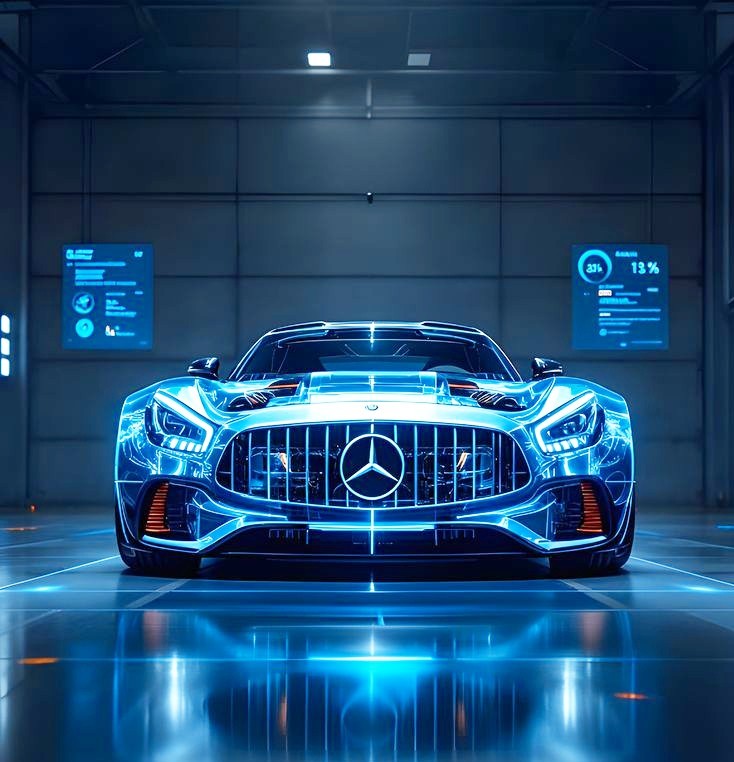
In order to combat counterfeit cars and their parts, Mercedes-Benz has worked closely with customs, trade supervision, and criminal enforcement organizations around the world.
The brand defenders pay special attention to counterfeits that are related to safety, particularly those that can cause serious accidents and do not adhere to Mercedes-Benz’s strict safety and quality standards.
Raids have resulted in the seizure of items including air filters composed of highly combustible materials, subpar brake parts, and brake pads that contain dangerous substances like lead and arsenic. Authorities seized almost 1.5 million Mercedes-Benz fake goods in 793 raids and with customs assistance globally in 2024 alone, a growing trend.
Originals represent quality that has been tested. Road safety is ensured by their compliance with technical, environmental, and occupational safety standards. Mercedes-Benz is thus collaborating closely with law enforcement to stop the proliferation of these fakes. The company protects consumers from deceit, prevents major accidents, and builds brand trust through their vigorous battle against the counterfeit market.
In particular, operations carried out with the assistance of international authorities are an essential step in the battle against the counterfeiting of dangerous products. Months of thorough research and planning frequently precede this. Mercedes-Benz brand guardians examine online offerings, pursue counterfeit leads, and carry out in-depth investigation to eventually locate the manufacturing locations of the counterfeiters. Preventing the spread of fake goods is the aim.
The authorities in charge of carrying out the raids are given access to the investigation’s findings. These officials search the counterfeiters’ workshops, which frequently have terrible working conditions and inflict significant environmental.
The Mercedes-Benz Brand Protection Team has seen a noteworthy trend in the counterfeiting of high-end, luxury brands, including Mercedes-Benz Maybach and AMG. This involves altering Mercedes automobiles in ways that are against intellectual property rights and even rebuilding whole automobiles. Mercedes-Benz’s brand protection staff consistently combats these infringements and alterations.
These counterfeit goods are still widely disseminated by counterfeiting networks via social media and internet platforms. They gain from these marketplaces and technology’ widespread anonymity, decentralized architecture, and social media’s rapid pace. For this reason, Mercedes-Benz has been stepping up its operational and strategic efforts to combat counterfeiting for years, including in the internet space. The brand guardians removed more than 212,000 listings of fake Mercedes-Benz goods and content that violated trademarks in 2024.
Mercedes-Benz Strengthens Executive Team With New Appointments
One of the Brand Protection Team’s success criteria is cooperation with authorities. As a result, the brand protectors frequently provide training sessions and educational materials to customs officials and service providers in order to raise awareness and avert problems.
How to avoid falling for fake goods:
Customers can steer clear of acquiring counterfeit goods by following a few easy guidelines. Examining dubious offers in regular (online) purchasing is the first step. A far reduced price, obvious flaws in the product’s quality, or sales from dubious (online) sources are typical indicators of counterfeits. In certain cases, it is evident from the product names or photographs that they are not authentic, particularly if Mercedes-Benz does not produce them.
Over 212,000 listings of fake products were taken down from social media and internet platforms in 2024, a 49% rise. Protecting the company’s DNA is one of its top priorities.





